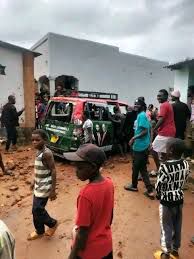
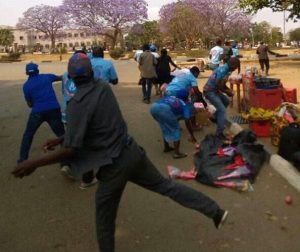
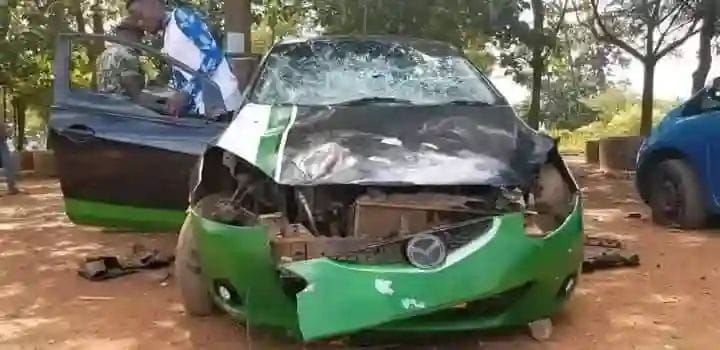
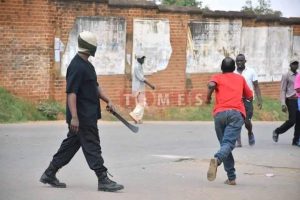
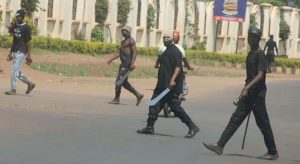
By: Kassim Kajosolo
Six months before the 2025 General Election the political landscape in Malawi has become a center of violence and hooliganism.
This is evidenced by the alarming cases of intimidation and restrictions some rival political parties are unleashing towards one another to hold political activities.
Malawians have witnessed a series of political violence from before the 2020 elections to the present day. We have heard politicians deliver hate speeches that incite violence and deepen divisions across the nation.
The two political powerhouses, the governing Malawi Congress Party (MCP) and the recent past ruling Democratic Progressive Party (DPP), have turned hate into a political tool, spreading it from podiums to Parliament, and even into citizens’ homes.
This ongoing political pandemonium is polarizing the nation, creating regional and partisan divisions.
MCP and DPP are locked in a verbal and physical war on political grounds. The tension they have generated instills fear among ordinary Malawians, some are afraid to attend political rallies out of fear they might be attacked.
Some politicians seem more excited to speak to crowds than to deliver meaningful messages, often resorting to unpalatable and divisive language. It’s not uncommon to hear them call for violence urging their supporters to beat, burn, or kill members of rival parties.
The situation has escalated further, with senior DPP members openly telling their supporters not to allow MCP rallies in some parts of the country. Some even encouraged supporters to beat MCP members, claiming the south as their political territory.
On the other hand, MCP youth members have taken a similar approach to protect the central region. In Msundwe, youths wearing MCP regalia were seen carrying pangas, erecting roadblocks, and searching vehicles heading toward Mchinji. Their aim was to prevent DPP members, including Vice President for the center Alfred Gangata, from holding a rally at Chiwosa Ground.
MCP members have also been involved in disrupting DPP’s activities in Lilongwe, as well as opposition demonstrations organized by civil society organizations (CSOs) in the capital.
It is laughable that both parties continue to blame each other for the violence. When questioned, each deflects responsibility by bringing up the other’s past wrongdoings, some dating back over a decade just to justify their own actions and escape accountability.
UDF spokesperson in Parliament, Esther Jolobala, said:
“I would like to put the record straight that this country is not for MCP or DPP only. We do not want to see a competition between just two political parties. They intimidate us, and we are tired of MCP and DPP competing over who can be more violent.”
Her remarks reflect the exhaustion felt by many smaller parties, who are sidelined while MCP and DPP dominate the political scene with intimidation and hooliganism.
Spokespersons from both MCP and DPP deny involvement in political violence, but their actions suggest otherwise. It seems both parties benefit from the chaos, perhaps that’s why neither is willing to tell their supporters to stop.
In a recent media interview, MCP Publicity Secretary Jessy Kabwira acknowledged that the political landscape is uneven in certain regions, but quickly blamed the DPP for using inflammatory language in the southern region.
MCP Secretary General Richard Chimwendo Banda echoed similar sentiments during a press briefing, condemning DPP violence but refusing to accept any blame on MCP’s part. He said: “We have noted with sadness the increasing number of DPP officials who are publicly inciting violence towards MCP members,” mentioning two DPP officials specifically.
He went on to say MCP members will be protected by the party’s own youth wing, though he did not clarify what that meant. Many suspect he was referring to the same youth who disrupted DPP rallies in Mchinji and Lilongwe.
In response, DPP’s Shadreck Namalomba blamed MCP and claimed DPP has been victimized multiple times, citing incidents in Bowe and Mchinji.
Clearly, both parties prefer blaming each other rather than taking responsibility. They must understand that they are not only part of the problem but also part of the solution.
As political analyst Sharif Kaisi once said: “Political violence is the last thing a political party without ideas does to gain public support.”
If we take this statement seriously, it becomes clear that both MCP and DPP lack the political ideas and vision necessary for the upcoming campaign. And perhaps, that is exactly why they are choosing violence over substance.



